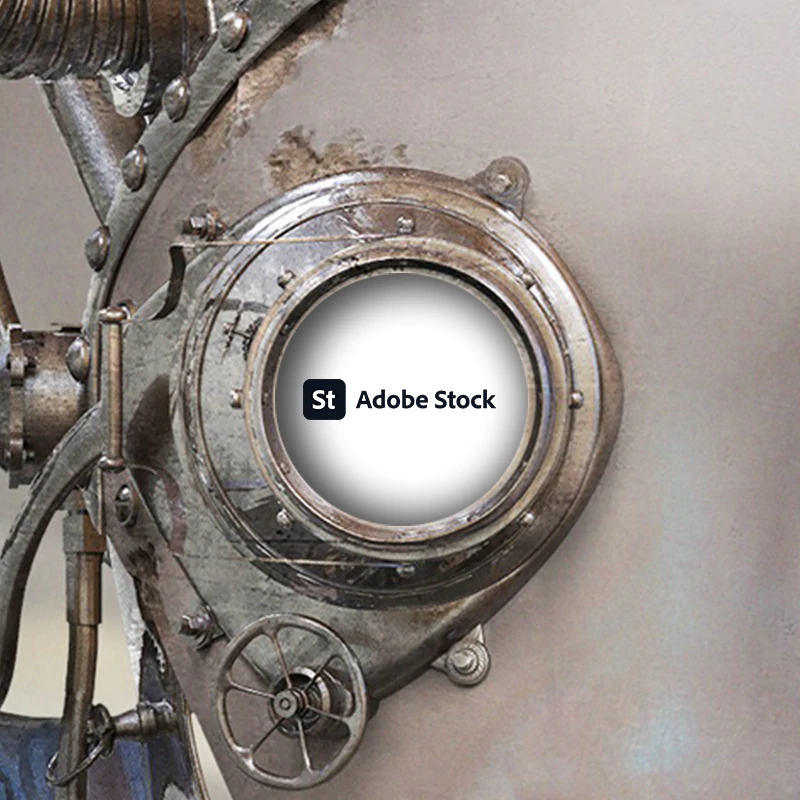
Stock photography is the supply of photographs which are often licensed for specific uses.
Stock photographers and image creators traditionally place their works on stock agencies, and share revenue with them. With the internet, the reach of stock photography increased dramatically, and with AIs becoming capable of generating their own images, stock photography is expected to become increasingly merrier.
The thing is, the stock photography business often lies between copyright issue and share of revenue. And with AI becoming capable of generating images, some stock photo websites are banning this type of imagery due to potential copyright issues.
After all, AI models are trained on real images, photos, and artwork, meaning there are countless unanswered questions regarding copyright.
But Adobe, the tech giant, is taking a different route.
Rather than avoiding them, the company is welcoming AI-generated content, saying that it’s a part of "navigating the creative evolution that generative AI brings."
Here, Adobe announced that its Adobe Stock has started accepting AI-generated content.
Creators use AI tools and technologies to diversify their portfolios, expand their creativity, and increase earning potential. Going forward, we have defined Adobe Stock submission guidelines for content made with generative AI. https://t.co/71zVzQja4y https://t.co/VKASZyNg44
— Adobe (@Adobe) December 5, 2022
"We believe that generative AI tools can help our contributor community continue to create amazing content," Adobe said in the announcement, adding that the company believes in "transparent, clear labeling for customers when it comes to this content."
Adobe senior director Sarah Casillas, added that AI content "meets our quality standards, and it has been performing well."
What Adobe is doing here, is not only selling AI-generated content through its stock image service, but also allowing artists to submit their own work and get paid for it.
Submitted images must apply the same terms as regular images and must have a label clearly mentioning generative AI content.
Artists who wish to upload their AI-generated imagery, are required to either own the content or have the necessary rights to allow Adobe Stock to use the content.
They need to ensure that their AI's work doesn’t infringe on any third-party rights.

Next, all AI-generated content is subjected to Adobe’s moderation guidelines.
But since AI-generated imagery is new to Adobe Stock, artists must also follow guidelines that deal with technical quality, IP compliance, and other requirements.
And finally, it should be noted that Adobe is not having a dedicated category for AI-generated content.
So here, artists must submit their AI's work as an illustration, not as a photo. There is an exception though, like if the work was primarily created using a camera. In this case, they can submit it as a photo.
Adobe has summarized this in a dedicated FAQ page about generative AI.
"Early generative AI technologies have raised questions about how it should be properly used. Adobe has deeply considered these questions and implemented a new submission policy that we believe will ensure our content uses AI technology responsibly by creators and customers alike," the company said in a blog post.

Generative AI has become increasingly popular, after researchers realize that AI models can be trained to show showing outstanding capacity in creating images, art, music and more.
With stock photography industry is embracing generative AI works, the technology isn’t going away anytime soon, even with a slew of legal or ethical gray areas.
But still the attitudes of different photo websites are largely different.
Adobe isn't the only company that is trying to embrace the trend. Others include Shutterstock, which has teamed up with OpenAI's DALL·E 2 to generate images.
Flickr also encourages artists to upload their "virtual photography" and even has a dedicated new category for this type of work, and Microsoft also likes the idea.
Others however, aren't that keen.
Getty Images, Unsplash, and PurplePort are banning works of generative AI, citing potential copyright issues and the “deceitfulness” of this kind of imagery.